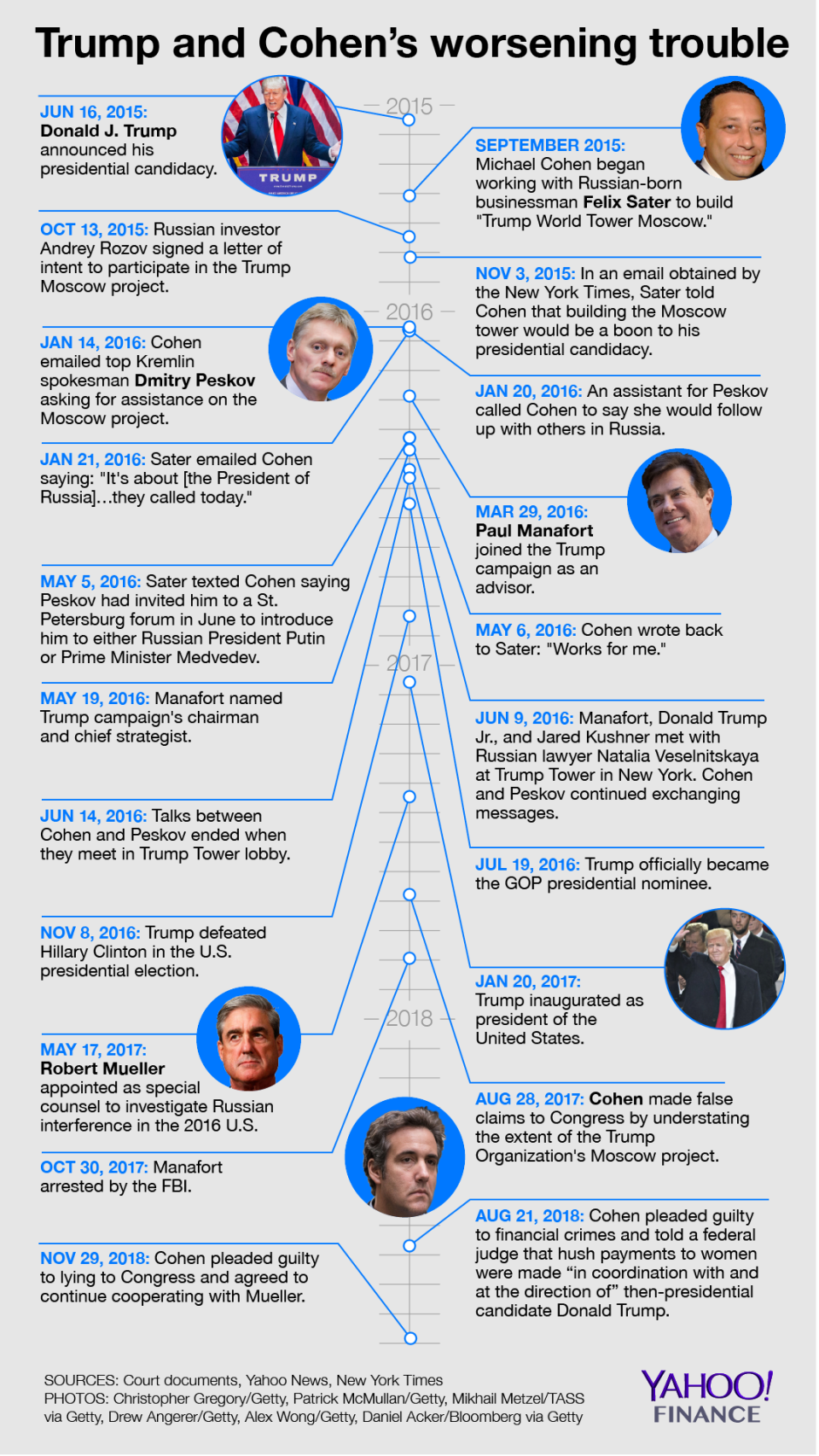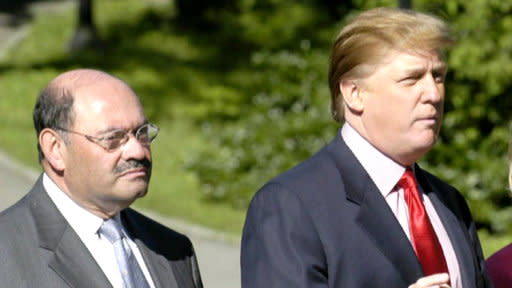Trump’s Russia connections are becoming clearer
Donald Trump was negotiating with Russian officials over a tower project he wanted to build in Moscow right up to the time he won the Republican presidential nomination in 2016, according to new legal documents filed by special counsel Robert Mueller. The upshot is that Trump had deeper financial interests in Russia while running for president than he has acknowledged up till now.
The new information comes in legal filings associated with a new guilty plea by Michael Cohen, who was a senior executive at the Trump Organization from 2006 until earlier this year. In August, Cohen pleaded guilty to eight criminal charges and began cooperating with prosecutors probing Trump’s connections to Russia. Cohen has now pleaded guilty to lying to Congress, based on false claims he made regarding the Russia project to House and Senate intelligence committees in 2017.
Cohen said then that the Moscow project ended with no deal in January 2016, which was after Trump had declared his presidential candidacy but before any of the primary elections. But Mueller found that Cohen—and Trump—continued to pursue the deal until as late as June of that year, when Trump was poised to become the Republican presidential nominee.
‘The Moscow project was discussed multiple times’
The timing is crucial because in January of 2016, Trump was a long-shot candidate who wouldn’t have been the focal point of Russian efforts to interfere in the U.S. election. But by June of that year, Trump was a king-slayer who had beaten every Republican and upended American politics. By then, he would undoubtedly have become a top interest of Russian president Vladimir Putin and his battalion of election meddlers.

Cohen told Congress last year that there was little discussion of the Moscow project within the Trump Organization after January. But Mueller found that “the Moscow Project was discussed multiple times within the company” during the spring of 2016, and that those discussions included Trump himself (described as “Individual 1”), along with family members Donald Jr., Eric, and Ivanka, who helped run the company. While Trump was notching primary election wins, Cohen was communicating regularly about the deal with Russian officials, who held out the prospect of a meeting with Putin. Cohen made plans to travel to Russia in either June or July, but then changed his mind.
There’s nothing illegal about an American developer pursuing a project in Russia. But when the developer is also a leading presidential candidate, there’s an obvious incentive for Russian leaders to curry favor with the candidate, or obtain compromising information on him—or both—in order to establish leverage that can be used later in matters of state. Determining whether this happened is a core mission of the Mueller investigation.
Trump the candidate was also surprisingly solicitous of Putin, a dictator and possible murderer who has invaded neighboring countries and allied with foes of America, such as Syria. In September of 2015, Trump told talk-show host Bill O’Reilly that Putin deserves an A for leadership. Several times in the first six months of 2016, Trump called Putin “a strong leader.” If the future US president was flattering the leader of an adversarial nation in the hope of winning needed permits for a business project, that would obviously be a major conflict of interest.
After Cohen’s latest guilty plea, Trump told reporters Cohen was “lying” in order to get a reduced sentence. He also said he had decided not to pursue the Moscow project himself, but didn’t address the timing. At this point, Trump surely realizes that Mueller has detailed information about Trump’s business operations, from Cohen and also from Allen Weisselberg, the chief financial officer of the Trump Organization, whom prosecutors have interviewed. Weisselberg has worked for the Trump real-estate business since Donald’s father Fred was the driving force, and probably knows as much about its operations as anybody outside the family. So if Trump lies in public or in testimony under oath, Mueller will likely know it.

Trump has had many business dealings with Russians over the years. His effort to build a Moscow tower goes back to at least 2013, when Trump traveled to Russia for a beauty pageant. He has sold properties to Russians and lined up financing from Russian lenders. Again, there’s nothing inherently wrong with any of that, on the surface.
The question is whether Trump also engaged in criminal political chicanery with the Russians, or with any foreign power. Two people Trump was in contact with during the 2016 campaign — former Trump campaign adviser Roger Stone and conservative activist, Jerome Corsi — appear to have known, before it was public knowledge, that Russia had stolen thousands of emails from Hillary Clinton’s presidential campaign and planned to release them through Wikileaks. Then there’s the infamous Trump Tower meeting on June 9, 21016, attended by Donald Jr. and other Trump campaign officials at which Russian operatives offered “dirt” on Hillary Clinton.
There’s no evidence yet that Trump directly conspired with Russia in criminal activity. But it also appears Trump has had more dealings with Russia than he wants people to know about.
Confidential tip line: [email protected]. Click here to get Rick’s stories by email.
Read more:
Rick Newman is the author of four books, including “Rebounders: How Winners Pivot from Setback to Success.” Follow him on Twitter: @rickjnewman
